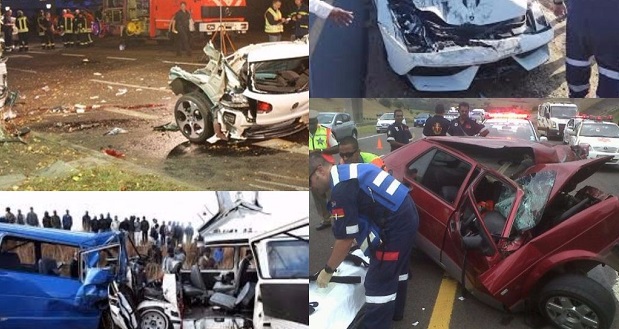During the festive season in South Africa, the number of road accidents spike tremendously, with fatalities escalating as well. Transport Minister Dipuo Peters said some days ago that there have been more than 800 road accident deaths since 1 December 2016, an increase of 17% to last year.
The majority of these accidents were the result of human error, with jaywalking and speeding and drunk driving being among the main reasons. And this is an old story. For instance, in 2015, more than 700 people died on our roads during December. Some 350 others were arrested for drunk driving.
But the minister said something different about this year’s accidents. Most of these accidents were caused by men, she said.Â
This is surprising because since vehicles were invented, women have been lambasted for their driving skills, accused of being reckless, dangerous and clueless drivers. Â You may have heard all the jokes about “women” drivers. Â About putting the world at risk as they apply makeup or breastfeed or daydream while driving. Well, it turns out patriarchy has been the real killer all along.Â
According to Minister Peters, the reason that the majority of car accidents, particularly around the festive season, are caused by men is due to “the male stubborn and chauvinistic attitudeâ€. And we are pretty glad she has called them out. This is not us trying to score silly points; road accidents destroy lives, entire families and futures. We need to talk about the reasons more openly.
Not all women are bad drivers but all bad drivers are women
— Rain Drop 💧 (@MvcPlvce) December 16, 2016
Studies on the differences between men and women driving have shown that men are more aggressive behind the wheel. In fact, men drive more carelessly and treat their fellow drivers with less respect. Accidents caused by women tend to be because of mistakes while driving, whereas men break rules and take more risks. Â A study done by the university of Michigan has shown that 94% of all fatal car accidents involve male drivers.
Men are more likely to drive under the influence of alcohol, drive over speed limits, run through red lights and cut into traffic. Women, on the other hand, are 27% less likely to cause accidents, and are statistically safer drivers. The behaviour of male drivers is steeped in patriarchy and toxic masculinity, because men ache to prove their manliness in every sphere of their lives, even at a great risk to themselves and others.Â
Most women turn into good drivers
So if you’re a good driver watch out for women turning.— You (@Daffah_hojao) December 23, 2016
During the December holidays, more young people drink and drive than usual. Our country is still very (!) patriarchal and often, it is a man who will usually be the designated driver, sober or not.
In fact, the stereotypes of women being bad drivers might actually encourage men to drive more than women, because both parties believe that a male driver is the safer bet.
But a drunk man trying to prove how great a driver he is while drunk is a recipe for disaster when holidaying families and relaxed drivers are on the road.
Despite all the stereotypical jokes about women being terrible drivers, I’d rather drive myself or be driven by other women.
— Legs (@Nami_Nom) December 16, 2016
Creating the illusion of women being bad drivers has been a lovely little cover-up for bad male drivers for a very long time. It is an old patriarchal tool, shifting blame.
Khaled Hosseini writes in A Thousand Splendid Suns that “Like a compass needle that points north, a man’s accusing finger always finds a woman. Always.”
Perhaps the country’s roads would be safer on Christmas and New Years if men stopped trying to prove how good they are at everything and shifted the blame for bad driving onto themselves instead.Â
Men may or may not be better drivers than women, but they seem to die more often trying to prove that they are. #WhyWeDrivetheWayWeDo
— Oliviah Omungoh (@O_Omungoh) December 14, 2016









